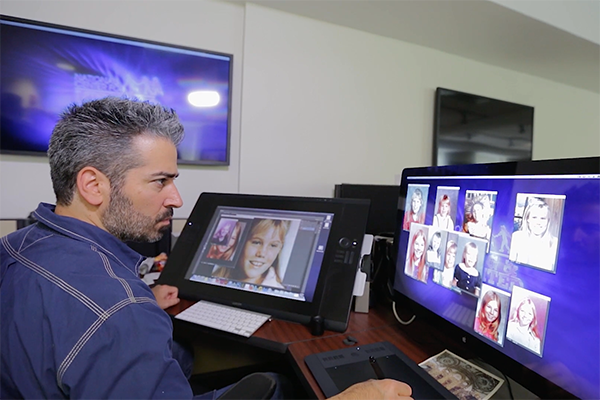In sleepy Monroeville, Alabama, best known for producing literary giant Harper Lee, a modern-day story is being written about seeking justice and protection for innocents.
The story’s protagonist, Camille Place, a nonprofit organization headquartered in Monroeville, is on a mission to help little girls find healing, hope and a future after being sex trafficked.
“Interstate 20 to Birmingham is known as the sex trafficking superhighway and I-10 to the south brings about 5,000 trafficking victims through Alabama each month,” said Camille Place founder and CEO Chris Ziebach.
In July a month-long initiative by the FBI dubbed Operation Independence Day resulted in 67 traffickers arrested nationwide and the removal of 82 children from situations of ongoing, continued victimization. One of the FBI’s 161 operations was conducted in Birmingham where the FBI and local law enforcement officials arrested 49 individuals involved in facilitating or performing sex work. No children were among those taken into custody in Birmingham.
However, police officers have communicated with more than 500 trafficked minors in Alabama, Ziebach said. It’s a sad truth that “there is currently nowhere for them to go if they did escape,” she added.
When completed Camille Place will be the only rehabilitation home in Alabama offering shelter specifically for young girls from 6 years old through 19.
Ziebach’s dream is coming to fruition with the help of generous donors including architects, construction companies and even Chip and Joanna Gaines, who contacted Ziebach to offer furnishings.
Each child will receive housing, food, clothing, medical and psychological treatment and a superior education.
Ziebach began sensing God’s call to help victims of sex trafficking in 2012.
“I was comfortable, happy. Why would I want to open a home for trafficked girls?” said Ziebach. “At first I didn’t even want to pray about it, but I began having dreams about three times a week of drugged girls being presented to men that were high. I also had dreams of myself as a victim of trafficking.”
Youngest victims
Ziebach surrendered, educated herself about sex trafficking and soon the plans for Camille Place began taking shape. She consulted with law enforcement agencies, including Homeland Security, child welfare agencies and any others that could educate her.
“I learned that the younger the victim the more money they will bring to their pimps — some being the child’s own parents,” said Ziebach. “The average age is about 11 to 15 years old and some are younger than 6.”
The home plans to break ground this fall and hopes to be ready to receive girls by spring of 2020. An anonymous donor recently contacted Ziebach with an offer of 50 acres in an undisclosed location to further expand the ministry to abused and trafficked girls.
“We can’t close our eyes to the trafficking of children,” said Ziebach. “We are moving forward in faith to build Camille Place to save girls from their abusers and bring them lasting freedom.”
Faith communities can play an important role in helping raise awareness and providing aid to the estimated 25 million adults and children worldwide who are victims of sex trafficking and forced labor, U.S. Ambassador-at-Large John Cotton Richmond said in releasing the U.S. State Department’s 2019 Trafficking in Persons Report (TIP).
“Traffickers continue to operate with impunity and only a small fraction of victims receive trauma-informed, victim-centered support services,” said Richmond. “Yet by working together governments, civil society organizations, survivor advocates and faith communities can reverse this troubling pattern.”
The TIP report annually measures nearly 200 nations on their success in fighting human trafficking within their own borders.
Most victims of human trafficking are victimized within their country of residence, the report said, although sex trafficking victims are transported internationally more often than labor victims.
The U.S. “fully meets the minimum standards for the elimination of trafficking,” the report found, but “opened, charged and prosecuted fewer cases; issued fewer victims trafficking-specific immigration options and granted fewer foreign national victims of trafficking eligibility to access benefits and services.”
Countries with the most severe problems not only overlook human trafficking but some systematically perpetrate the crime, according to the report.
The TIP report is a valuable resource for churches seeking to engage human trafficking globally, said Raleigh Sadler, a Southern Baptist who founded Let My People Go (LMPG), a New York ministry equipping churches to address human trafficking.
“The report exists to educate us on what human trafficking looks like around the world and what is being done about it,” Sadler said.
“For those of us in the local church we could read the country narratives to have a better picture of what is happening in each setting. Imagine what could happen if we prayed for those in each country.”
Clearer picture
Sadler’s ministry, online at lmpgnetwork.org, offers church training through a Justice Weekend of intensive teaching on recognizing vulnerability and serving the most vulnerable and the LMPG Experience, a missional week of teaching, service projects and other outreach ministries to vulnerable populations in New York.
Upcoming LMPG Experience weeks are March 9–13 and 16–20 in 2020.
Secretary of State Mike Pompeo described human trafficking as a strain and a stain on all of humanity.
“We detest it because it flagrantly violates the unalienable rights that belong to every human being,” Pompeo said upon the TIP report’s release June 20 in Washington. “Every person, everywhere, is inherently vested with profound, inherent, equal dignity. … America was founded on a promise to defend those rights — including life, liberty and the pursuit of justice. But too often we’ve fallen short and we cannot fall short on this challenge.”
The TIP report covers April 2018 through March 2019 and is compiled from a variety of source materials.
The full report is available at www.state.gov/reports/2019-trafficking-in-persons-report. (Susan Withrow Murphy, BP)






Share with others: